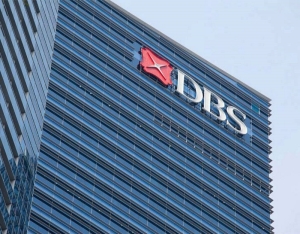DBS sets coupon low in debut US$1bn AT1
DBS Group Holdings achieved the lowest ever coupon on a US dollar Additional Tier 1 benchmark on 30 August when it sold its first AT1 issue outside its domestic Singapore dollar market, a $750m perpetual non-call five deal.
After a two day Asian roadshow and conference calls taking in European accounts, bookrunners DBS Bank (sole global coordinator), Citi, Deutsche, HSBC and Société Générale went out at the Asian open with initial guidance of the 4.00% area on the back of some $2bn of indications of interest. With books approaching $8bn as European interest started to come in, guidance was tightened to 3.65% plus or minus 5bp. The order book totalled around $6.5bn at the ultimate 3.60% coupon.
“This was a challenging transaction, and the outcome was a strong endorsement of the firm, as well as a vote of confidence in the regulatory environment,” said Yeoh Hong Nam, head of wholesale and structured funding at DBS.
“We feel it important to be fair to our investors and have always tried to price our transactions so they tighten modestly when trading opens,” he added. “I think we settled on the correct coupon in the end, with the bonds trading tighter the next day, before settling above par.”
He attributed the record pricing to a variety of factors, such as the rare investment grade AT1 ratings of A3/BBB+ from Moody’s and Fitch.
“We were also at the end of a long summer break, during which significant cash levels had built up with the investor base,” he added. “The absolute level of yields had also been squeezed much lower as central banks had flooded the market with liquidity following the Brexit vote.
“While the market was very conducive, the most important step was to get the story in front of investors. To that end we held detailed conversations with over 100 clients, mainly across Singapore and Hong Kong.”
Yeoh said that other than the credit story and how DBS manages its exposures, investors were interested in the implementation of Basel standards in Singapore.
“The regulatory environment in Singapore is known to be demanding, but this also worked in our favour as it means that the bank is coming from a position of strength, and is subject to the highest standards,” he said.
A key difference in DBS’s instrument to European AT1s was that it does not include a CET1 trigger. Loss absorption is only at the point of non-viability as determined by the Monetary Authority of Singapore (MAS).
“Following the Basel standards, Singaporean regulations do not require AT1 instruments to have CET1 triggers if certain requirements are met,” said Yeoh. “This allowed us to offer an AT1 instrument where investors did not have to worry about a contractual CET1 trigger.”
The transaction was DBS’s first outside its domestic Singapore dollar market and Yeoh said that the issuer met its objective of diversifying and broadening its investor base.
“We have significant loan books and hence RWAs in US dollars whereas the majority of our capital base is in Singapore dollars,” he said. “Adding US dollar capital is thus always of interest, as long as it’s at a cost that is close to what is available in our home market. Diversification of the investor base has also been a theme over the last years, so we welcomed the opportunity to engage with the US dollar investor base in Asia.
“We were very happy with the high quality nature of the distribution,” he added. “Even the allocations to private banks emphasized accounts that that we felt were holding the bonds for the long term and on an unleveraged basis. We also saw a large number of institutional names in the book who were new investors to DBS.”
The transaction was only the second AT1 out of Asia, after ICBC (Asia) had in July priced a $1bn perpetual non-call five deal, rated Ba1, at 4.25%.
Yeoh said that DBS’s activity in bank capital should be modest in 2017.
“The bank is very well capitalised, with 16.5% Total CAR, 14.4% CET1 and a leverage ratio of 7.8%,” he said. “So if we do come to market for capital in 2017 it is unlikely to be in very large size.
“The preference for US dollar capital remains, so we would most likely prioritise that market assuming pricing was close to what we can achieve in Singapore.”

